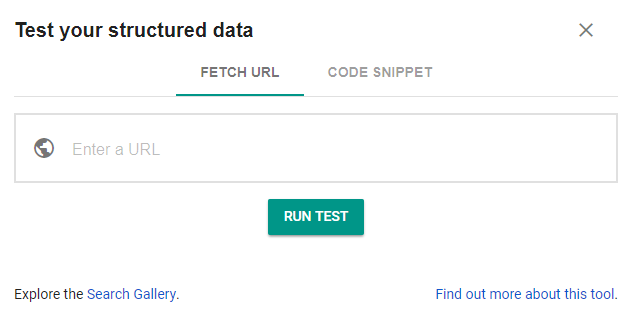By Kevin Moore on 5 Mar 2018
Estimated Read Time: 8 minutes
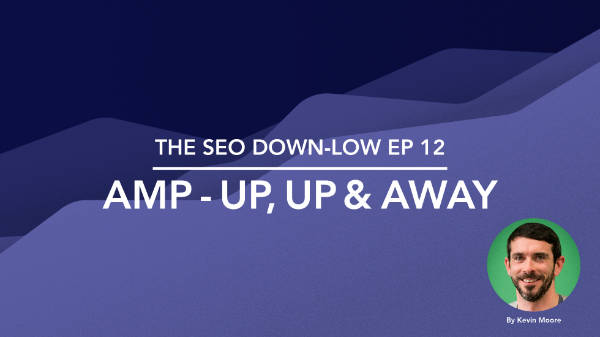
Howdy partners! So, after a short sabbatical and a refreshed examination of how the SEO Down Low is going to play out in 2018, we have decided to keep the original, slick branding. But from an evergreen, SEO perspective, have decided on a simple but hopefully productive change. Instead of the SEO Down Low being labelled as a monthly instalment and dying in the SERPs with the date/month, we are rolling out Episodes (EP). Hence this Down Low being called EP 12!
And what an episode this is going to be, with some massive technical game-changers being rolled out over the past few weeks, we have no shortage of cool SEO shit to get stuck into.
So, without further ado, let’s rock on.

AMP – Up, Up & Away
February has been a very busy month for one of my major hot tips for the internet as a whole over the coming years – Accelerated Mobile Pages (AMP). AMP is a project that has been running for the last few years, largely driven by Google engineers to bring a fast and seamless experience to the internet as a whole. Every year the AMP community converge on a new city and the massive annual AMP Conference was held in Amsterdam only last week 23rd February where they rebranded it as AMPsterdam!
It was essentially a Google reunion with the majority of speakers from the hallowed halls of Googleplex in San Jose USA. Some of the thought leaders in this field include, Paul Bakaus, Malte Ubl, Alberto Medina and Rudy Galfi.
Just prior to writing this episode, I was blessed with the greatest of luck and managed to click on a tweet by our friend Barry Adams over at Polemic Digital, who was lucky enough to attend the event and wrote a savage article on State of Digital about the most impressive announcements and key takeaways from the two day event.

For those of you that are new to AMP you can check out an earlier article I wrote last year covering all things Accelerated Mobile Pages.
Since we wrote that article back in 2017, there have been some serious savage developments on the wonderful road to where we are today, including one of the more recent developments, the combination of Structured Data and AMP.
Google recently published a guide on how developers can add Schema Mark-up to AMP code to enhance the visibility of article pages in the top carousel of Rich Results.
“Proper structured data in your news, blog, and sports article page can enhance your appearance in Google Search results. Enhanced features include entry in a top stories carousel and rich result features such as headline text and larger-than-thumbnail images.”
Source: https://developers.google.com/search/docs/data-types/article
AMP Case Studies
As with any new technology, there are early adopters and cynics. I embrace the early adopters and cherish when they get their just rewards. It is then up to those who are pushing the product, in this case AMP, to scream about the success stories. At Wolfgang we believe that there is huge opportunity in Ireland to become a case study as an early adopter.
Check out some of these stats from companies in the US that have jumped on the AMP rocket ship ahead of their competition:
Event Tickets Center: 20% increase in conversions
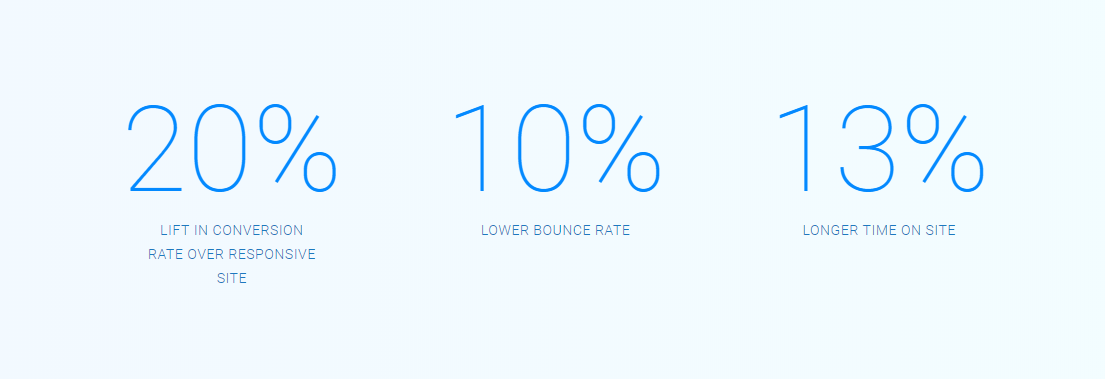
ConsumersAdvocate.org: 20% increase time on page
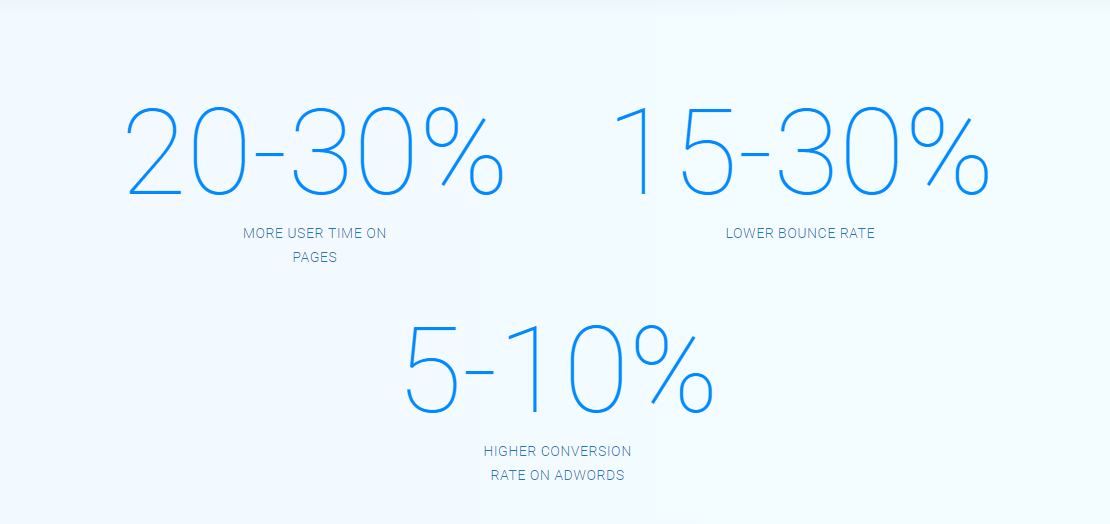
US Xpress: $1M in annual cost savings

Eski.Mobi: 29% increase in CTR
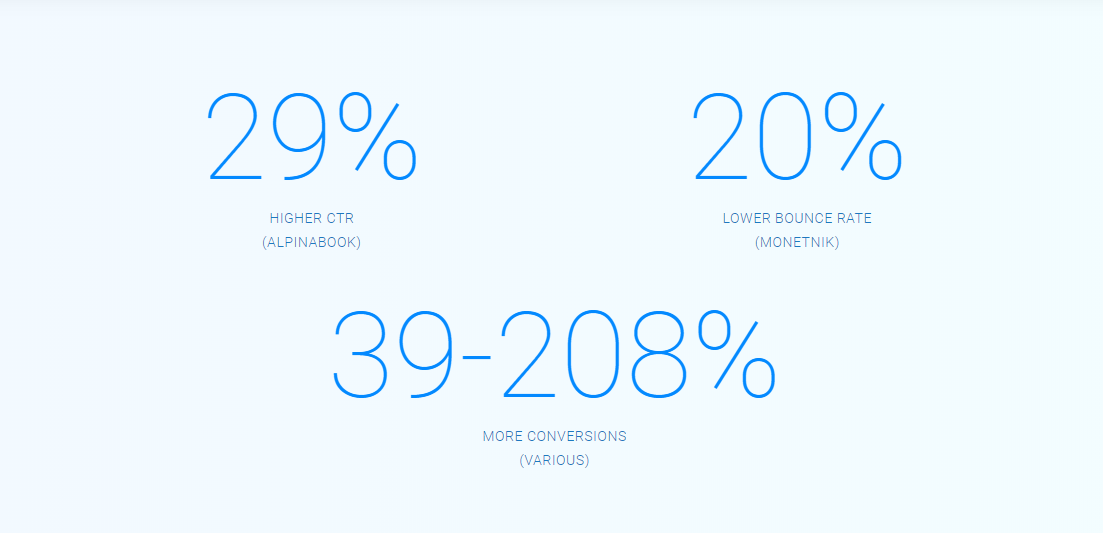
The results speak volumes…..of cash money!
AMP Tools
So, if you are looking to jump into AMP and get a better understanding of how it can work on your website check out some of these cool tools:
- The AMP Validator
- AMP By Example
- AMP Playground
- AMP Start
- AMP Experiments
- Structured Data Testing Tool
Check out some of our favourite talks at this year’s AMP Conference:
- AMP loves e-commerce
- AMP optimisation and SEO
- AMP Powering WordPress
I understand that AMP is a debate that will roll on for another few years, but with Googles Mobile First Index already rolling out across the globe, the last question to ask is:
‘To AMP or not to AMP? That is the question’

Structured Data – Not Going Away
The SEO crew in Wolfgang love a bit of Structured Data, we have been advocating for it over the past few years and have even a few specialists that will implement Schema across your website using Google Tag Manager, if you would like your website marked up for the future of SEO, contact the SEO team here – Schema My Site
The problem with Schema and Structured Data is the simple fact that it is being implemented incorrectly on websites. We have also spotted elements of the industry who like everything new, try to game the system and go a bit rogue. Bigger fools them, Google does not mess around and have identified these perps and quickly hit them a schlap on the wrist.
John Mueller, recently revealed that simply following what other competitors are adding to their website, is not always the answer. Sometimes you may even go too far and add a load of Schema.org code that Google likes but at present does not utilise, thus wasting your precious time.
While Schema.org is a wealth of information and mark-ups, if you are focusing on the Big G, then their developer resources should be your go to destination for all things structured data.
“I recommend looking at the search developer documentation and picking from those types that are in there which actually make sense for your individual pages.”
You can find some nice documents here:
Product Entities
https://developers.google.com/search/docs/data-types/product
Knowledge Graph Card Entity
https://developers.google.com/search/docs/guides/enhance-site
Specific Local Business
https://developers.google.com/search/docs/data-types/local-business
We have found that using the above structured data on web pages can definitely help the search engines understand the content of the page much better and therefore helps to return your page for certain queries.

WordPress and Google – The Perfect Couple
Okay, let’s start with a quick round of stats on these two powerhouses and why we believe this is one of the most monumental partnerships since the dawn of the web.
WordPress, enter the ring,
- Powering a whopping 30% of all websites on the internet - w3techs.com
- Dominating CMS share of the global market at 50-60% – making it the most popular CMS out there for the 7th year in a row - builtwith.com
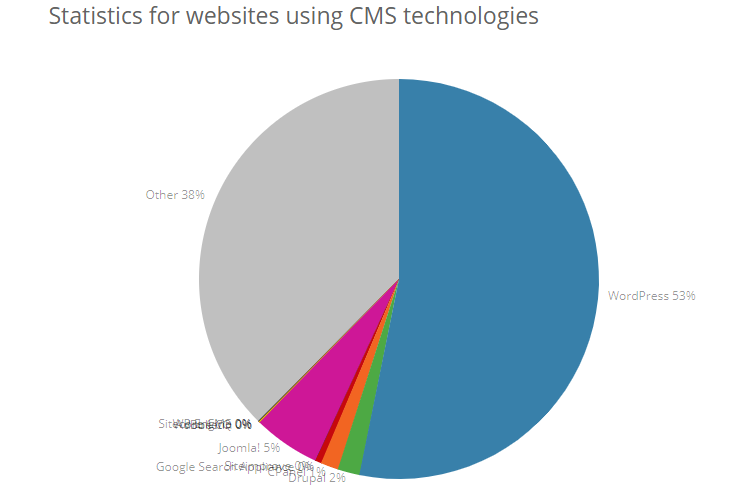
- WordPress powers 14.7% of top 100 websites in the world - whoishostingthis.com
- Roughly 19,500,000 websites on the entire web use WordPress – builtwith.com
- Finally, according to Dion Hulse, Lead Developer @ WordPress has even been caught guiding missiles – dd32.id.au
Now enter the dragon – Google,
- Over 2 trillion yes, (2,000,000,000,000) searches are carried out on Google each year – Search Engine Land
- Google searches per day – 3.5 billion – Internet Live Stats (We really recommend this site)
- Google’s search engine market share – 91.65% - Stat Counter

- Chrome Browser market share – 57.41 - Stat Counter

- 15% of searches are new, never been searched before – Search Engine Land
So without further ado, Alberto Medina a Developer Advocate at Google, recently wrote an interesting article on his blog. Revealing to the world at large that Google love WordPress –
‘it shouldn’t come as a surprise that we are also huge fans of WordPress, which enables publishers to easily create and deliver rich web content to users all around the world’
As previous editions of the SEO Down Low highlight, Googles continual drive to raise the bar for their users, be it speed, UX, relevance or just good old performance, this is why these two giants are colliding. WordPress also has plenty of tools and plugins which can speed up marketing quite easily.

Literally joining up with the Web Content Ecosystems Team at Google, if you are from Ireland, it will require a relocation to Google HQ in the states!
Daily tasks will include the following:
- Working with engineering teams at Google to develop relevant product integrations. This includes reviewing API designs, testing of new features, and guiding internal teams to success within the WordPress ecosystem.
- Collaborating with external WordPress developers to deliver production code to WordPress core, plugins, and themes
- Working closely with the WordPress community to drive awareness, and adoption of new technologies, as well as coding and performance best practices — e.g. attend and speak at WordCamp events, create written guides and videos, and so on.
- Participating in technical and design discussions with both technical leads and executives at strategic partners to speed up adoption and ensure best practices during implementation.
Anyway, watch this space….
Check out this class video Google Trends compiled from 2017 – very emotional!

Google Maps – Miles Ahead of The Competition
In our everyday work at Wolfgang Digital we stumble on some absolutely cracking websites, articles and tools and today we would like to show you how Google is miles ahead of any other mapping provider. We must give credit to Justin O Beirne who wrote this comprehensive article on the topic.
https://www.justinobeirne.com/google-maps-moat
And boy did he go deep! Our synopsis will just tip over some of the features that blew our minds.
Check out some of the comparisons between Google Maps and Apple Maps, the devil is in the detail!
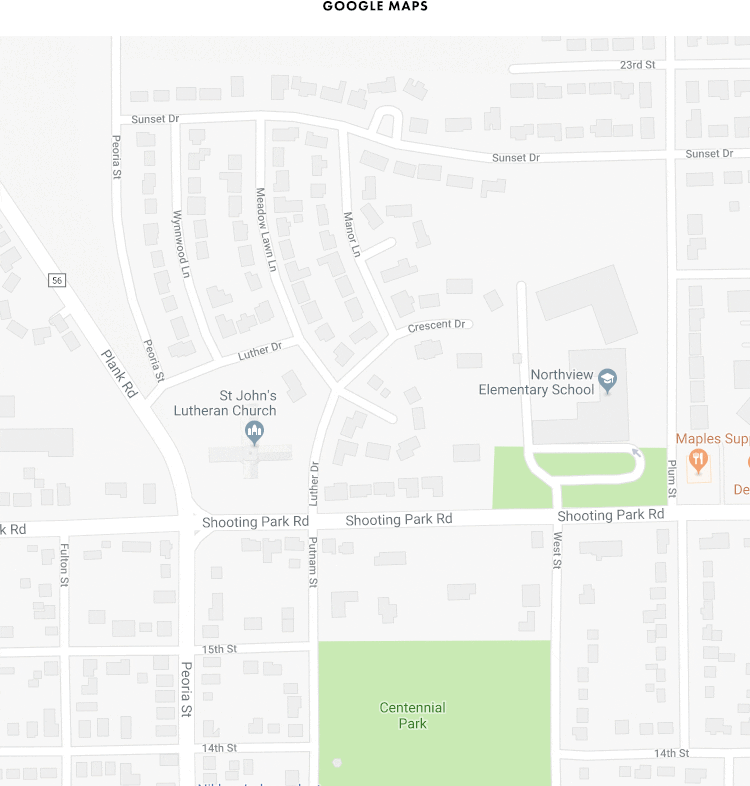

Then Justin compares Google Maps with some of the lesser known competitors in the space.

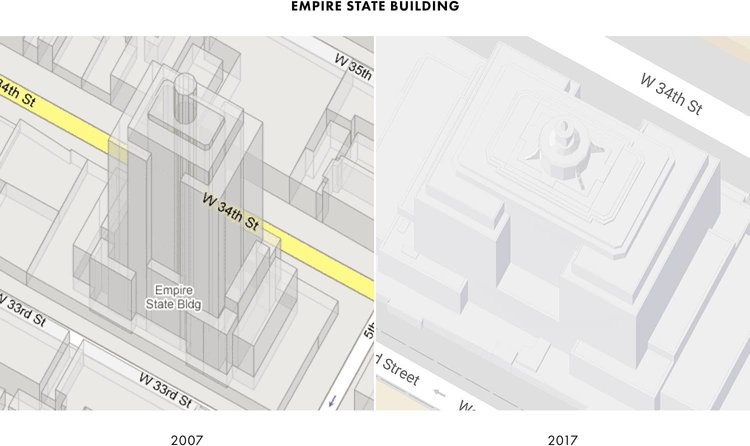
These building footprints, complete with height detail, are algorithmically created by taking aerial imagery and using computer vision techniques to render the building shapes.
As we delved deeper into the clever work that goes into the creation of Google Maps, we came across some really interesting things such as this creative work by Christoph Niemann.
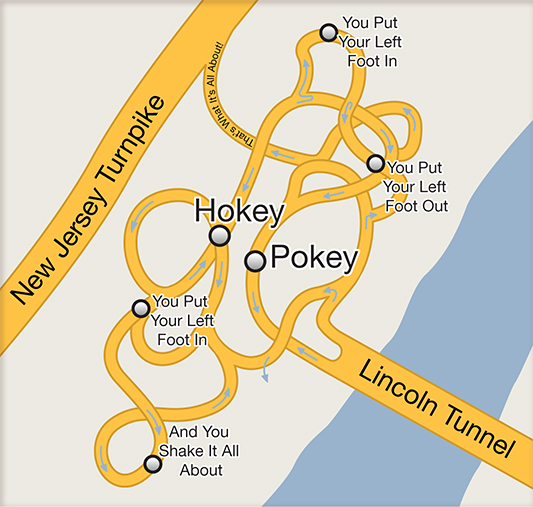


Okay, that’s that, we really hope you enjoyed the 12th Edition, please leave some comments to keep us motivated! Finally, here is a little treat to help you Calculate the Potential Revenue Impact your page speeds are having on your bottom line. To inquire about our holistic SEO services feel free to drop us a line.

